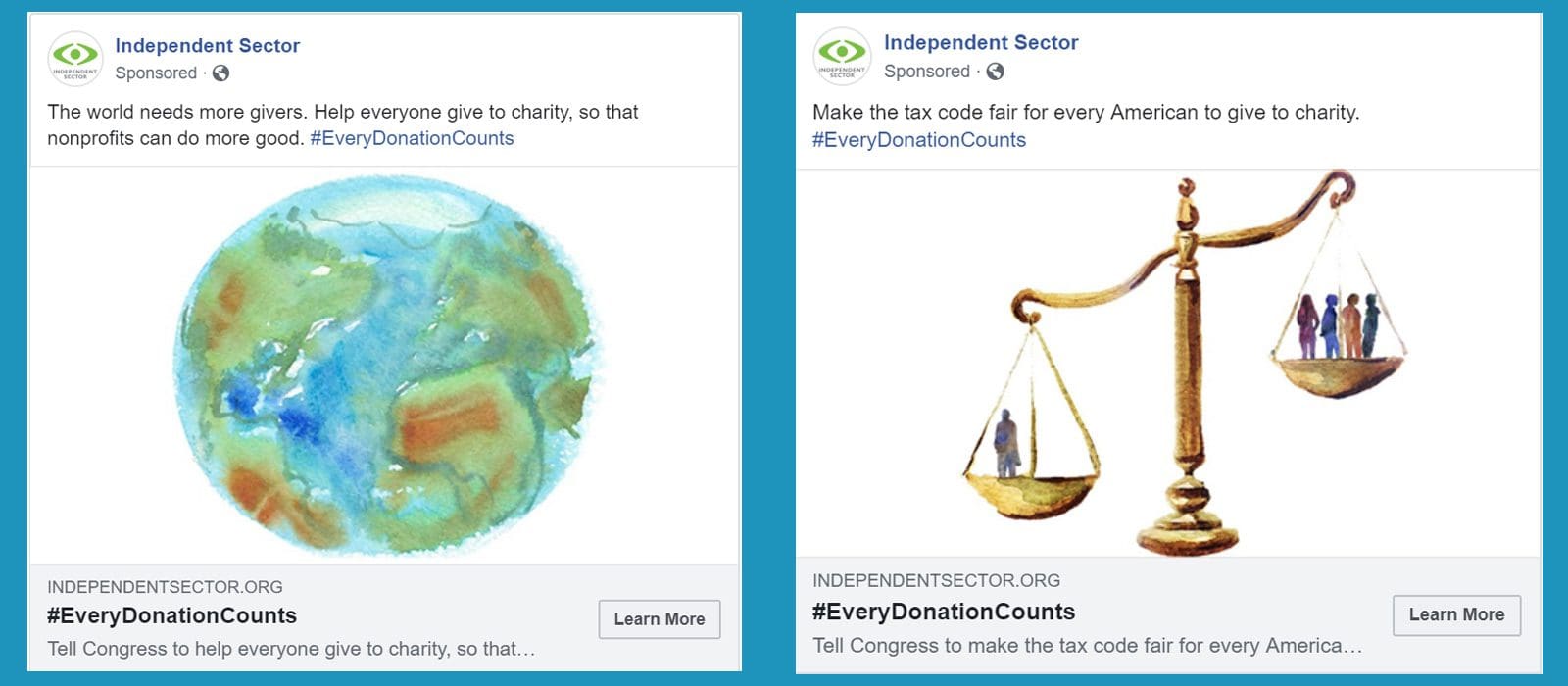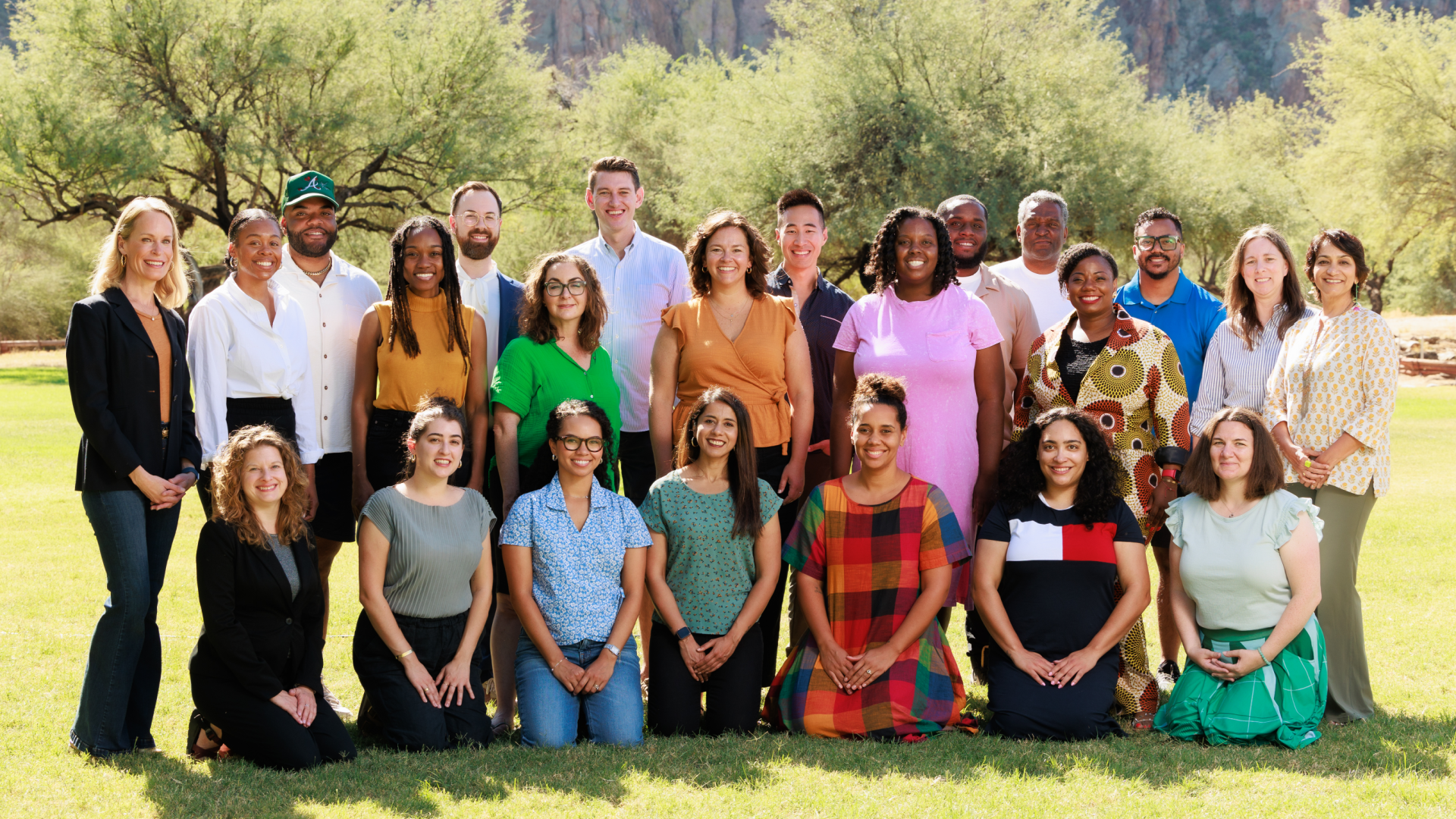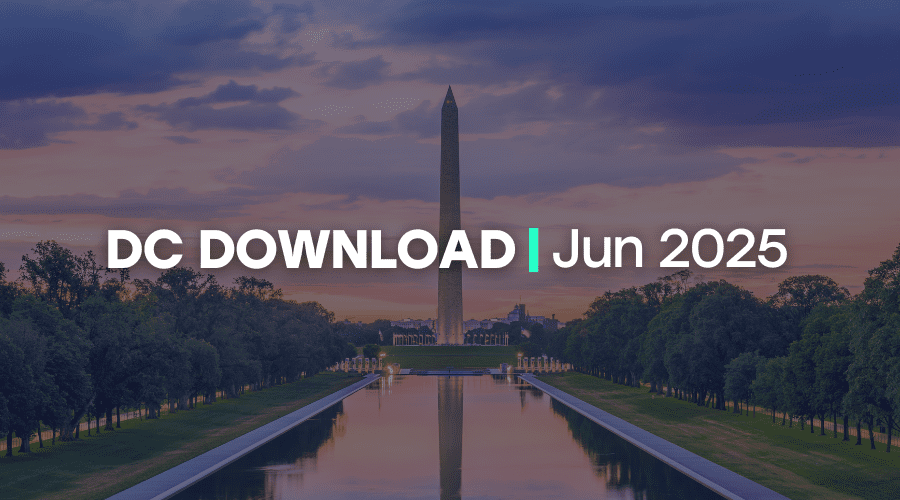I’ve always found the idea of “being off the grid” somewhat appealing, but as a communications professional working at a nonprofit in 2019, that is nearly impossible. My full name appears everywhere, and you can find me on many of the most popular social media platforms. I’m definitely not off the grid. Yet, when I was recently asked by Facebook to verify my identity as a person living in the United States to run an Independent Sector advocacy ad, I paused.
First, they asked for my home address. That seemed invasive. I tried to put in my work address. They wouldn’t accept it. I read the fine print, and they claim that they will delete the information after 30 days. Still I hesitated, then thought about fulfilling my duties as an administrator of this Facebook page, and agreed to give them my address. By giving them my address, they would send me a code in a letter by mail to my home. I could use that code to verify that I was who I said I was.
The screen advanced to the next step. Facebook asked me to upload a copy of a legal form of identification – a driver’s license, state ID, or passport.

Wait a minute…
Last year, Facebook announced that it has changed its process for any entity that wanted to place an ad on its platform related to “social issues, elections or politics.” They did this in response to the Cambridge Analytica scandal. The UK-based company was using personal data from 87 million Facebook profiles for political purposes and to influence the American electorate ahead of the 2016 elections. On its face, the changes in Facebook’s guidelines are welcome reforms to prevent foreign interference in our election process, but as a consequence, administrators for many nonprofit Facebook pages have to disclose personal legal documentation to run an ad. (Here’s a helpful guide on all the changes.)
I completely understand Facebook’s need to change its guidelines, but this seems a bit heavy-handed on issues that matter to many of us in the charitable community. According to these new rules, issues like civil rights, education, immigration, taxes, and even “values” will get flagged as social issues for which you need authorization. Independent Sector is a legitimate 501(c)(3) in good standing with the IRS. Couldn’t I verify something about the organization rather than give Facebook my personal information? Can I trust that Facebook won’t be hacked in the next 30 days before they delete my information? Can I trust Facebook to not use the information for other purposes?
I have wasted countless hours going back and forth with Facebook about this requirement. I tried using different words and different ad options. I tried to email Facebook’s support staff but received the exact same generic (and robotic) response.
This experience has left me wondering: how many other nonprofits are being limited in using the advertising platform to share their advocacy messages? Is Facebook limiting not just the voices of nonprofit advocates, but also the voices of the communities we serve and represent?
Below are two ads we submitted to run on Facebook. The one on the left was accepted, the one on the right was rejected. Interestingly, the one that was rejected also happens to be one that we know resonates the best with people on both sides of the political spectrum, according to our recent messaging research.

Do you have a similar story? We’d love to hear from you. Share your similar stories or thoughts below or reach out to me directly.



